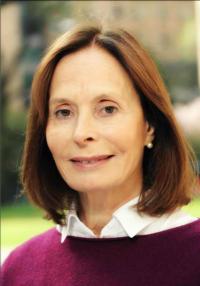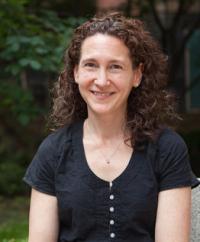
Columbia Mailman Honors Frederica Perera’s Contributions to Children’s Environmental Health
On April 15, faculty, staff, community partners, and supporters gathered at Columbia University’s Mailman School of Public Health to celebrate Frederica “Ricky” Perera, a visionary in environmental health research and founding director of the Columbia Center for Children’s Environmental Health (CCCEH). The event highlighted Perera’s groundbreaking contributions to understanding how environmental toxins harm children—and how researchers, working in partnership with community leaders, can drive policy to protect them.
Dean Linda P. Fried honored Perera, an emeritus professor in Environmental Health Sciences, with the inaugural Dean’s Lifetime Achievement Award, recognizing her decades of contributions to public health—especially to bettering the health of children. Perera has been an innovator throughout her career, pioneering the field of molecular epidemiology as a Columbia graduate student with the late Bernard Weinstein then later founding CCCEH in 1998 where influential studies showing how air pollutants and other chemical exposures disrupt fetal and child development, leading to asthma, cognitive delays, and other lifelong health burdens. A special celebratory video was screened at the event (watch it below).
“We have the opportunity to honor and celebrate a scholar, a scientist, and a leader for the public’s health who has been a pioneer and gamechanger in this field at every stage of her career,” Dean Fried said. “Ricky has been described as a public health superhero by her peers. … She has been working to transform our collective understanding of how environmental factors affect human health, and especially through the lens of children and pregnant women.”
Central to Perera’s legacy is a long-term study of mothers and newborns, which has followed over 1,500 mother-child pairs in New York City for decades. This landmark research has demonstrated that prenatal exposure to air pollution lowers IQ and increases asthma risks, while also demonstrating that policy changes—like cleaner buses and pesticide bans—improve health outcomes. “We don’t just show the bad news,” Perera noted at the event. “We’ve demonstrated the benefits of clean air and climate policies, including a dramatic drop—about 50 percent—in air pollution breathed by pregnant women in New York City and hundreds of avoided cases of preterm birth, and childhood asthma and neurodevelopmental disorders in other populations.”
The Power of Partnership
The evening’s panel, moderated by Frances Beinecke, former president of the Natural Resources Defense Council (NRDC), underscored how Perera’s work thrives through collaboration. Peggy Shepard, co-founder of WE ACT for Environmental Justice and a member of the Columbia Mailman Board of Advisors, said her 25-year partnership with Perera and CCCEH was unique because Shepard didn’t just join a research project—she helped design it. “We were able to have input into what was going to happen,” Shepard recalled.
Their alliance translated data into action. WE ACT used the findings published in peer-reviewed journals to campaign against diesel buses idling near schools, leading to New York City’s transition to hybrid and electric fleets. “The data that the Center helped to gather really informed our campaign, and enabled us to finally convince the MTA,” Shepard said.
Julie Herbstman, CCCEH’s current director and professor in Environmental Health Sciences, said the work they do relies on trust and teamwork—mothers who’ve participated for 20 years, scientists across disciplines, community partners, and a dedicated staff. She stressed the need for sustained funding to maintain long-term studies. “The kind of work we do requires sustained attention and continuity,” Herbstman said. “You can't start and stop when funding is stopped.”
The Fight Ahead
In a political climate where environmental regulations face rollbacks and environmental science funding is cut, the panel agreed that Perera’s model—community-engaged, interdisciplinary science—is more critical than ever. Climate change, chemical mixtures, and persistent inequities demand rigorous science—and robust advocacy by community partners.
Herbstman outlined new frontiers, saying tools like AI and exposomics are making it possible to study how mixtures of environmental chemicals affect our health. No one is exposed to air pollution or BPA or temperature extremes alone, she said, observing, “We need to understand what happens when you [are subjected to] exposure across the board.” But the job doesn’t end with a paper published in a scientific journal. Herbstman developed a course in partnership with Columbia’s Journalism School to bridge the gap between the way scientists and journalists convey information.
A Call to Continue the Mission
Dean Fried closed with a rallying cry to support the critical work of CCCEH and its partners, saying that their partnership “brings hope, energy, and possibility,” and a collective vision that science, in partnership with community leaders, “can really change the world.”
As guests toasted Perera’s legacy, the message was clear: honoring her career meant committing to the work ahead. “We’re not planning to slow down,” Perera said. “We plan to keep going ever stronger.”
Header photo left to right: Dean Linda P. Fried, Frederica Perera, Julie Herbstman, Peggy Shepard, Frances Beinecke.

